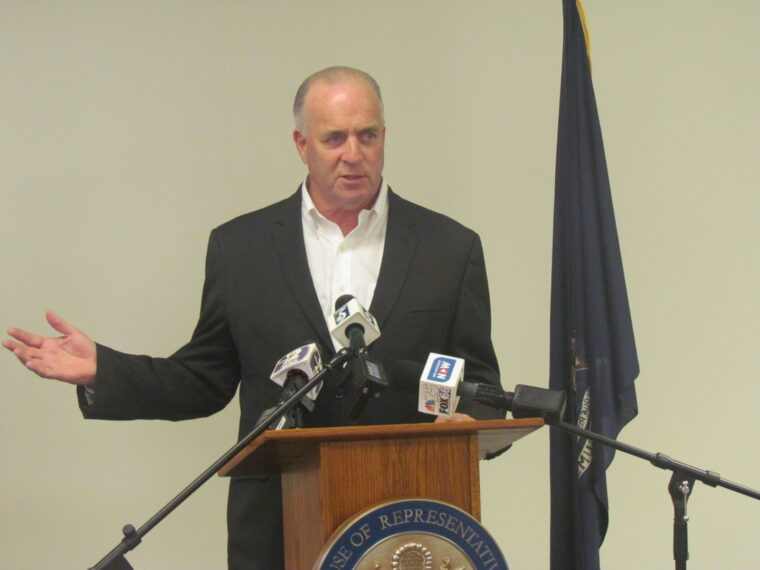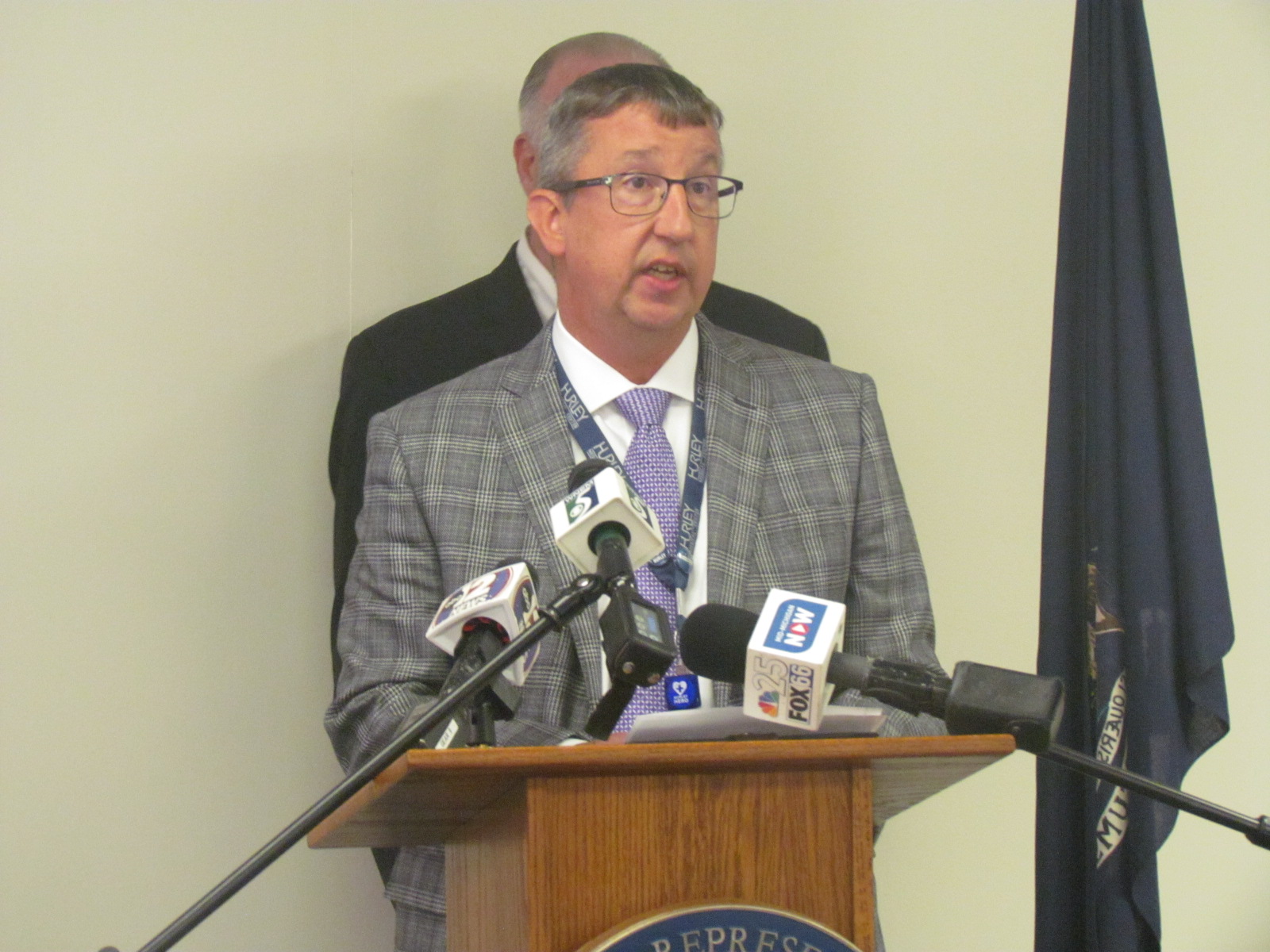Featured photo: Ashley Strozier, family mobility coordinator for Communities First, Inc., said she connects community members to important resources in her role and that she has benefitted from the WIC program.
By Tanya Terry
Without congressional action by October 1, the federal government will shutdown. Congressman Dan Kildee (MI-08) held a press conference highlighting the local impacts a potential government shutdown would have in mid-Michigan. The press conference took place Monday, September 25, at Michigan Works! In Flint.
Jody Kerbyson, CEO, GST Michigan Works! pointed out the region, state and country are all facing a talent crisis.
“Employers can’t find enough skilled workers to fill positions,” Kerbyson added. “Now is not the time to cut funding to programs that help train workers and expose youth to viable career paths. The federal government has shown that it’s committed to investing in good-paying American jobs and new technologies, like energy and microchips. But we must remain committed to training individuals to work in those careers or all of that federal funding will be for naught. In addition, there’s a massive, real-world human impact of a potential government shutdown. Locally and across the country, individuals seeking wrap-around and job training services will be denied.”
Kerbyson said at a time when more people should be getting placed in high-demand careers, instead individuals who want to work would be sent away because of lack of resources to assist them if the federal government shuts down.

Congressman Dan Kildee stressed by the end of the week the government would shut down unless Congress came up with a bipartisan way to keep the government open.
“We have done it already once before,” Kildee added. “We’ve come to an agreement about our spending plans…”
Kildee pointed out the shutdown would definitely hurt the economy, threaten our national security, cause layoffs of hundreds of thousands of workers and cause SNAP recipients to lose access to their food benefits.
“A shutdown threatens the safety of Americans,” stated Kildee. “It’s a threat for our troops, for national defense, for air travel, for rail safety, for food inspection. All of these critical national needs would be neglected if a shutdown takes place.”
Mokresha Adams, a registered nurse (RN) at Hurley Medical Center, shared that her mother got pregnant at age 15 and birthed her when she was 16. Her mother obtained a GED and later her CNA because of the Flint Healthcare Employment Opportunities (FHEO) Program. The program was designed to assist the unemployed and underemployed residents of Flint and Genesee County while they obtain training for and employment in the healthcare industry. The FHEO Program has received funding from the C.S. Mott Foundation, Community Foundation of Greater Flint, GST Michigan Works, the Aspen Institute and the United States Department of Labor.

Adams herself participated in the Flint STRIVE program and received her CNA before becoming a registered nurse.
Ashley Strozier, family mobility coordinator for Communities First, Inc., said she connects community members to important resources in her role.
“The fear of a state shutdown would hit my family directly,” Strozier shared. “There are thousands of others that it would affect as well.”
Strozier said WIC is a program that helps families before, during and after a baby is born.
“WIC helps to provide additional support to important dietary items, such as fruits, vegetables, dairy and whole wheat consumables,” Strozier added.
Stozier shared her daughter was born premature at 25 weeks.
“WIC was able to provide my daughter with a specialty formula that she needed in the middle of a formula shortage,” said Stozier.

The Special Supplemental Nutrition Program for Women, Infants, and Children is an American federal assistance program of the Food and Nutrition Service of the United States Department of Agriculture.
According to the Center on Budget and Policy Priorities, WIC is federally funded through the annual appropriations process; states are not required to contribute funds. Since 1997, Congress — on a bipartisan basis — has provided sufficient funding each year for WIC to serve all eligible applicants. The program receives approximately $5 billion to $6 billion annually.
Clarence Pierce, CEO of Hamilton Community Health Network and Keith Poniers, VP & CFO, Hurley Medical Center also spoke about how a government shutdown could negatively impact the most vulnerable individuals in our community who may be in need of medical care.




